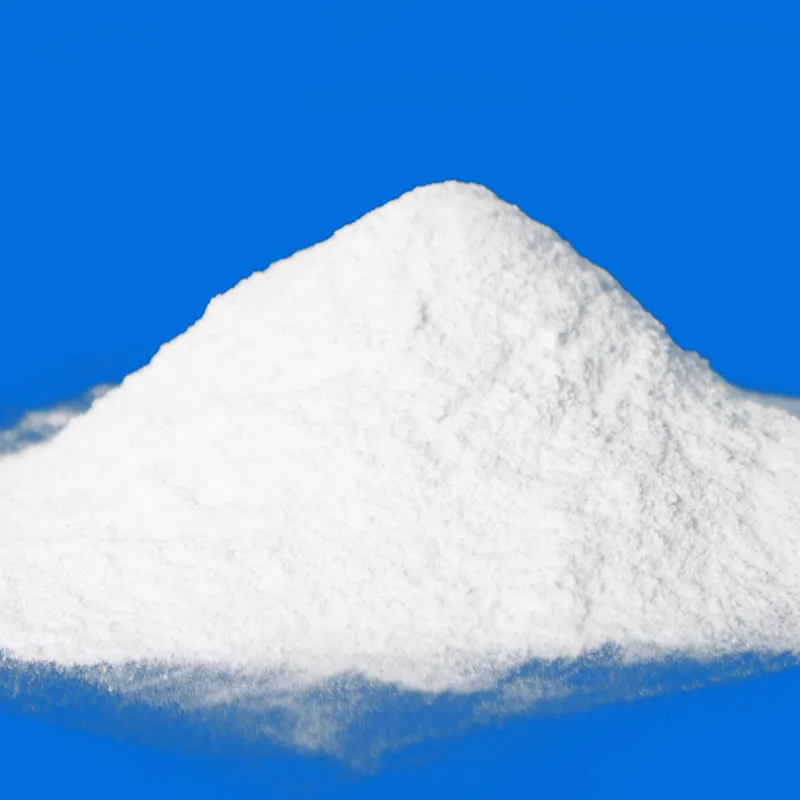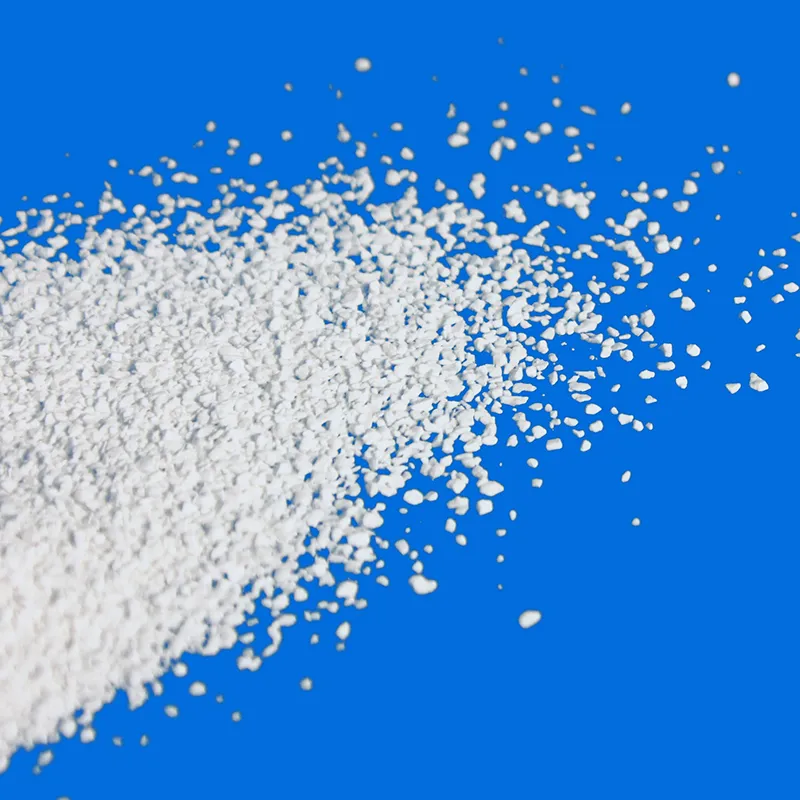
Trichloroisocyanuric Acid for Sale – High Purity TCCA 90 Tablets
As water treatment and disinfection standards escalate globally, demand for high-quality **trichloroisocyanuric acid for sale** (TCCA) has surged across municipal, industrial, and commercial sectors.
This comprehensive guide details key technical parameters, production processes, application scenarios, and supplier comparisons of TCCA 90, the most referenced tcca chemical in the industry.
Click here for the latest offers and product technical support.
1. Industry Overview & Market Trends
- As of 2023, global TCCA demand reached 420,000 metric tons (MarketWatch, 2023).
- Major demand drivers:
- Strict water quality compliance (ISO 9001, ANSI/NSF 60)
- Rising municipal & swimming pool sanitation requirements
- Effective cost control in industrial cleaning
- Key products: Trichloroisocyanuric acid tablets, granular and powder forms (TCCA 90 content up to 90%).

2. Technical Specification & Parameters
| Component | Tablet (%) | Granular (%) | Powder (%) | Standard Ref. |
|---|---|---|---|---|
| Active Chlorine | ≥ 90 | ≥ 90 | ≥ 90 | GB/T 10666-2021 |
| Moisture Content | ≤ 0.5 | ≤ 0.5 | ≤ 0.5 | ISO 7393-2 |
| pH (1% sol.) | 2.7-3.3 | 2.7-3.3 | 2.7-3.3 | ANSI/NSF 60 |
| Solubility | Soluble | Soluble | Soluble | FDA GRAS |
| Standard Sizes | 200g, 20g, 2g | 8-30 mesh | 80-200 mesh | Customizable |
3. Manufacturing Process Explained
The manufacturing of trichloroisocyanuric acid for sale involves several rigorously controlled steps to ensure purity and performance. Below is an illustrated rundown of the process, highlighting critical control points, certifications, and process technology.
 Raw Materials
Raw Materials
- Step 1 — Raw Material Selection: Cyanuric acid, chlorine gas, and sodium hydroxide (guaranteed by ISO 9001:2015).
- Step 2 — Chlorination Reaction: Highly controlled temperature & pressure chlorination using high-purity reactant vessels (CNC-fabricated, ANSI-compliant).
- Step 3 — Crystallization: Automated filtrate crystallizing units for consistent particle size distribution.
- Step 4 — Granulation/Tabletting: High-precision casting & tabletting (patented TENGER process), ensures mechanical strength and uniform dissolution rate.
- Step 5 — Drying & Quality Control: FDA GRAS drying protocols with moisture
- Step 6 — Packaging & Dispatch: Automated, anti-corrosive, and customizable bulk/retail packaging per client spec.
Each batch is subject to ISO 9001 and ANSI/NSF 60 certification, with traceable barcodes for shipment authenticity. Production lifespan for TCCA products is tested to exceed 36 months under optimal storage in sealed, dry conditions.
4. TCCA 90 (Trichloroisocyanuric Acid) — Product Grades and Industry Comparison
TCCA is available in various grades, adapting to distinct water treatment and sanitation challenges worldwide. Below, a comparison with typical leading brands is provided, based on Chinese and US industry data (2023 Q4).
| Brand | Chlorine Content (%) | Tablet Form | Moisture (%) | Solubility Speed | Certifications | Major Industry |
|---|---|---|---|---|---|---|
| TENGER | 90 | 2g, 20g, 200g | <0.5 | Fast | ISO, ANSI, FDA | Water, Pool, Agriculture |
| Lonza | 89-90 | 20g, 200g | 0.7 | Medium | ISO, NSF | Municipal, Pool |
| Shandong HaiKe | 88-90 | Custom | <0.7 | Medium | GB, ISO | Industrial, Pool |
| BioLab USA | 88 | Tablet, Granule | 1.0 | Slow | FDA | Domestic, Municipal |
It’s clear that TENGER TCCA 90 offers leading-edge active chlorine content with ultra-low moisture and full-process certifications to support critical water infrastructure and sanitation projects.
5. Data Visualization: Trends & Key Metrics
Exploring market data (2022-2024) and technical performance indices, we visualize the rapid adoption and enhanced capabilities of trichloroisocyanuric acid for sale versus other chlorinating agents.
- Active Chlorine Retention: TCCA holds over 96% efficiency after 18 months storage.
- Adoption Trend: Swimming pool, drinking water, and process water industries favor granular/tablet format (market share > 63% in 2024 Q1).
6. Application Scenarios and Technical Advantages

- Municipal Water Supply: Continuous disinfection, pipe anti-corrosion (Satisfies ANSI/NSF 60)
- Swimming Pools & Spa: Algae, bacteria, and virus control (200g/tablet, rapid dissolution)
- Food Processing: FDA GRAS certification, residue below 0.01 mg/L, safe for indirect food contact
- Poultry & Livestock: Odor removal, cross-contamination prevention
- Industrial Cooling Towers: Biofilm and scaling prevention, cost-saving on chemicals (Lonza study 2022: >18% chemical cost savings)
- Challenge: High scaling, biofilm in summer, previous disinfectant inefficiency.
- Solution: Deployed 500kg/month TENGER TCCA 90 by automated dosing; improved biofilm index by 76% within 8 weeks, halving maintenance downtime (ISO 10523 water quality verification).
The inherent strengths of pure TCCA 90 include extended release, high active chlorine, low-residue, corrosion inhibition, and adaptability to automated dosing—resulting in significant labor and chemical cost reductions.
7. Customization & Supplier Comparison
Leading suppliers offer **customized TCCA chemical** solutions tailored to application and dosing regime:
- Tablet Size & Dissolution Speed: Select from 2g (rapid, small-scale), 20g (daily spa), 200g (large pool, industrial) formats.
- Packaging: 1kg/Bottle, 50kg/Drum, or bulk packs. Special anti-static or anti-humidity packaging available for export logistics.
- Purity Optimization: Custom synthesis to guarantee ≥90% active chlorine for critical projects.
- On-Site Technical Support: Many manufacturers provide in-country engineers for commissioning.
8. Professional FAQ—Technical Glossary
- Q1: What is the active material base of TCCA 90?
- TCCA 90 refers to Trichloroisocyanuric Acid with 90% available chlorine. It's a strong, stable oxidizer in tablet, granular, or powder form, widely used for water disinfection.
- Q2: What are the mainstream trichloroisocyanuric acid for sale specifications?
- Standard sizes: Tablets (2g, 20g, 200g), Granular (8-30 mesh), Powder (80-200 mesh). Customization available as per dosing equipment.
- Q3: What international certifications should reputable TCCA have?
- Key certifications: ISO 9001:2015, ANSI/NSF 60, FDA GRAS, GB/T 10666 compliance for China.
- Q4: What is the dissolution profile and why is it important?
- Dissolution determines how quickly active chlorine is made available. Controlled granulation ensures continuous sanitization with no dosing peaks, critical in pools and process water.
- Q5: How long is the shelf life of quality TCCA chemical?
- Properly stored (dry, sealed, below 30°C), TCCA 90 retains >96% actives for up to 36 months.
- Q6: Which installation/usage standard is referenced worldwide?
- ANSI/NSF 60, EU REACH, and FDA indirect food contact limits are primary regulatory references for global water application.
- Q7: What are the recommended handling and storage protocols?
- Use corrosion-resistant PPE, keep container111s sealed, avoid exposure to acids/reducers, store in ventilated areas (ISO 2230 recommendations).
9. Delivery Cycle, Warranty & Customer Support
- Standard Delivery: 7-15 working days for FCL/LCL shipments, with digital order tracking.
- Warranty: Minimum 36 months functional stability (under recommended storage), with technical replacement/credit for non-conforming batches.
- Technical Hotline: 24/7 application and emergency support available for contracted clients.
- On-site Training: Provided for industrial installations or special project launches.
- After-sales Service: Customer support teams respond within 8 hours for technical issues, with root-cause analysis as standard procedure.
All TCCA production lots come with CoA (Certificate of Analysis), Safety Data Sheet, and are insured by international liability coverage.
10. Reference & Industry Authority
— Sourced from Water Online — Disinfection Trends 2024
For a deeper scientific discussion, see ScienceDirect: Advances in Isocyanuric Acid Chemistry.
-
What Is a Food Additive? Global Insights, Applications & Future TrendsNewsNov.24,2025
-
968 Sweetener: The Modern Solution for Health-Conscious SweeteningNewsNov.23,2025
-
Discover the Benefits and Uses of 965 Sweetener (Erythritol) | Tenger ChemicalNewsNov.23,2025
-
961 Sweetener - A Next-Gen Sugar Alternative for Health and IndustryNewsNov.23,2025
-
Understanding 960 Sweetener: The Modern Sugar Alternative for Health and IndustryNewsNov.22,2025
-
Everything You Need to Know About 955 950 Sweeteners – Benefits, Uses, and TrendsNewsNov.22,2025
-
953 Sweetener: Global Insights, Applications, and Future TrendsNewsNov.21,2025
Hebei Tenger Chemical Technology Co., Ltd. focuses on the chemical industry and is committed to the export service of chemical raw materials.
-

view more DiethanolisopropanolamineIn the ever-growing field of chemical solutions, diethanolisopropanolamine (DEIPA) stands out as a versatile and important compound. Due to its unique chemical structure and properties, DEIPA is of interest to various industries including construction, personal care, and agriculture. -

view more TriisopropanolamineTriisopropanolamine (TIPA) alkanol amine substance, is a kind of alcohol amine compound with amino and alcohol hydroxyl, and because of its molecules contains both amino and hydroxyl. -

view more Tetramethyl Thiuram DisulfideTetramethyl thiuram disulfide, also known as TMTD, is a white to light-yellow powder with a distinct sulfur-like odor. It is soluble in organic solvents such as benzene, acetone, and ethyl acetate, making it highly versatile for use in different formulations. TMTD is known for its excellent vulcanization acceleration properties, which makes it a key ingredient in the production of rubber products. Additionally, it acts as an effective fungicide and bactericide, making it valuable in agricultural applications. Its high purity and stability ensure consistent performance, making it a preferred choice for manufacturers across various industries.





